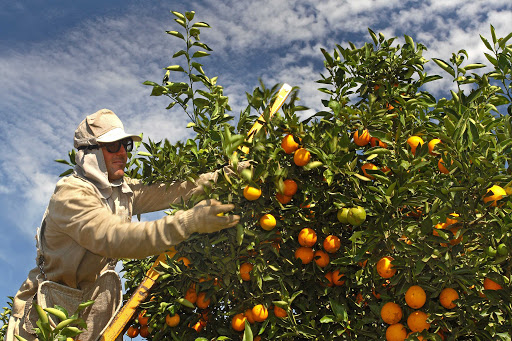Employment in the sector accounts for 14% of jobs generated by citriculture in the State of São Paulo.
Citrus culture remains one of the major job-generating cultures in the country. According to data from the Caged (Cadastro Geral de Empregados e Desempregados or General Cadaster of Employment and Unemployment) compiled by the Brazilian Association of Citrus Exporters (CitrusBR), the sector generated a total of 10,554 new jobs from July to September 2020, the period marking the first quarter of the 2020/2021 crop year. Although the figure represents a 14% reduction from the 12,339 jobs generated in the same period of the previous crop year, orange orchards hold an important share in the total number of jobs created in the country, accounting for 8.89% of the total number of agricultural employment in Brazil, which totals 118,716 jobs.
The decrease in the number of jobs in citriculture is due to the biennial nature of the harvest, which in this season has an approximate 26% lower production compared to the previous period. “The harvest of citriculture is extremely manpower demanding. A smaller harvest ends up requiring less people. But we can still observe an important participation of the sector in the generation of jobs,” says the executive director of CitrusBR, Ibiapaba Netto.
Of the total number of jobs generated by citriculture, 86% are in the State of São Paulo, with a total of 9,163 admissions. This means that of the 63,547 jobs created by São Paulo state agriculture between July and September 2020, orange production accounted for 14.42%. From January to September of that year, citriculture already accounted for 31,584 admissions. “The fact is that every year the citrus culture contributes with about 40,000 job openings throughout the year, with all the legal protections for workers in regions thatare lacking formal employment opportunities, which generates income and development for the interior of São Paulo,” Netto explains.


